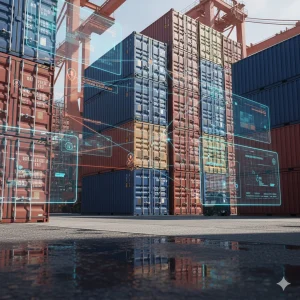In today’s hyperconnected global economy, the concept of “risk” is no longer tied to static lists or quarterly updates. It’s dynamic, fast-moving, and deeply geopolitical.
In 2025, sanctions regimes have not only become more aggressive but also more reactive. From flash sanctions targeting rogue regimes to instant wallet-level freezes in crypto, enforcement is now digital, centralized, and immediate.
Organizations operating in high-risk sectors, i.e., finance, crypto, fintech, e-commerce, etc., are under constant pressure to prove that they can detect and act on sanctions changes in real-time.
Because regulators are watching, and the consequences of delay are steeper than ever.
The Sanctions Explosion: Scope, Speed & Scale
Over the last few years, sanctions programs have grown exponentially; not just in volume, but in sophistication.
Regulators like OFAC, the EU, and the UK have moved beyond targeting heads of state or known criminals. Now they are designating:
- Shell companies
- Crypto wallets
- Digital platforms
- Entities associated with cybercrime, ransomware, and terror networks
The numbers are staggering. In 2024 alone, OFAC made over 1,200 new designations, including dozens of digital wallet addresses linked to illicit finance.
This reflects a clear shift; sanctions are now targeting digital activity directly, and doing so at unprecedented speed.
For compliance teams, this means legacy, list-based screening tools that update daily or weekly can’t keep up. A 24-hour lag could be enough to violate a newly issued designation.
Real-Time Screening: What it Means
Many businesses believe they are conducting “real-time” screening when they update the sanctions list daily. But in 2025, real-time screening has a much higher bar.
It means having systems that:
- Monitor sanctions updates live, not hours or days later
- Match customer data, wallet addresses, and transactions as they happen
- Instantly block or flag high-risk activity for immediate action
- Resolve false positives quickly without halting legitimate users
It also means continuous screening; not just at onboarding, but at every critical event:
- Login
- Funds transfer
- Wallet creation
- Beneficiary change
- Payout or offboarding
Regulators now expect a layered, event-driven approach. “We didn’t know the list had changed” is no longer a valid excuse.
The Cost of Getting It Wrong
Non-compliance with sanctions obligations isn’t just a minor regulatory hiccup; it’s a direct threat to business continuity.
Recent enforcement cases have included:
- Fines exceeding $300 million for institutions that failed to act on newly sanctioned parties
- Criminal liabilities for executives who ignored or delayed sanction-related warnings
- License revocation, leading to a total halt in operations
- Public backlash and loss of trust, especially in consumer-facing fintech and crypto firms
But beyond penalties, the real cost is reputational. In a world where transparency is expected and regulator collaboration is routine, platforms that slip up even once may find themselves under ongoing scrutiny.
Sanctions Screen in the Crypto & Fintech World
Crypto and fintech are uniquely exposed to sanctions enforcement. Why? Because they process high volumes of transactions, cross jurisdictions in seconds, and often lack traditional controls.
In 2024, OFAC sanctioned multiple crypto wallet addresses linked to ransomware groups, terror financing cells, and sanctioned state actors. Entire DeFi protocols have been flagged for facilitating exposure, even unintentionally.
In this ecosystem, risk can enter your platform at any point:
- A wallet that was clean yesterday may be sanctioned today
- A user may route funds through a tainted address to test your controls
- A fintech partner may onboard a shell company linked to a designated entity
That’s why real-time, address-level, and transaction-aware sanctions screening isn’t a feature; it’s survival.
The Emerging Risk of Indirect Exposure
2025 has brought a wave of secondary sanctions and “exposure liability.” That means you don’t have to transact directly with a sanctioned entity to be at risk. You just have to be facilitating one.
This applies to:
- Crypto platforms that clear tokens through tainted smart contracts
- Fintechs that route payments for partners indirectly linked to sanctioned groups
- Marketplaces that host vendors operating as front companies for embargoed states
Modern enforcement agencies use AI and blockchain analytics to map indirect relationships, from beneficial owners to counterparties-of-counterparties. If your compliance tools only detect exact matches, you’re exposed.
The answer? Contextual sanctions screening powered by real-time relationship mapping, UBO tracing, and network analysis.
How IDYC360 Helps You Stay Ahead of Sanctions Risk
At IDYC360, we’ve engineered our sanction screening platform for the real-time, multi-asset, multi-jurisdictional world of 2025.
Here’s what that means for you:
Always-on Sanctions Intelligence
Our system pulls live feeds from OFAC, UN, EU, UK HMT, DFAT, and other global regulators. The moment a designation drops, your platform is protected, without lifting a finger.
Entity + Network Matching
We go beyond names. Our platform analyzes entity relationships, shell structures, aliases, and ownership networks to identify indirect exposure with precision.
Wallet + Address-Level Monitoring
We screen crypto wallet addresses across major chains in real-time. Whether you operate a wallet service, DEX, or custody solutions, we help ensure you’re never facilitating prohibited activity.
Seamless API-Based Deployment
Integrate IDYC360 directly into your transaction systems, KYC flows, or real-time engines. Our tools are designed for speed, scalability, and zero-lag compliance decisions.
Audit-Ready Logging
Every sanctions check, every update, match, block, or override is securely logged and exportable. Be ready for audits or regulatory inquiries at any time.
With IDYC360, you’re not just checking boxes. You’re building real-time compliance into he core of your business infrastructure.
Final Thoughts
The world has changed, and compliance expectations have changed with it.
Today, sanctions enforcement is faster, more global, and more technologically advanced than ever. Whether you’re a fintech, exchange, bank, marketplace, or wallet provider, your screening must match that speech.
Real-time sanctions screening isn’t about ticking a checkbox. It’s about protecting your business, your users, and your reputation in a volatile world.
The only question is: Are your systems moving as fast as your risks?
Ready to Stay
Compliant—Without Slowing Down?
Move at crypto speed without losing sight of your regulatory obligations.
With IDYC360, you can scale securely, onboard instantly, and monitor risk in real time—without the friction.











